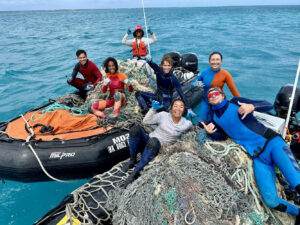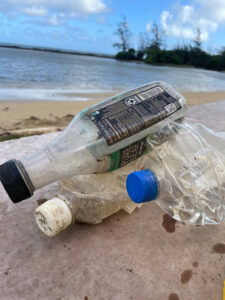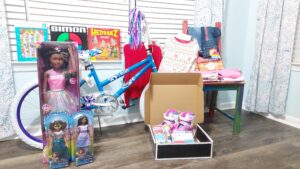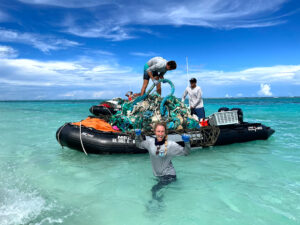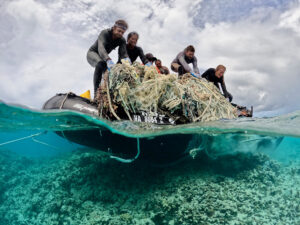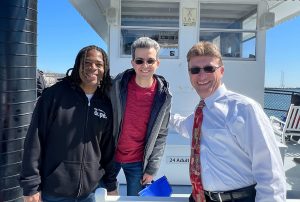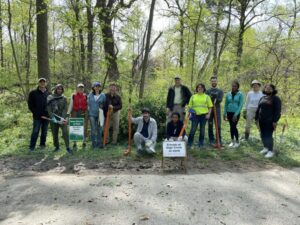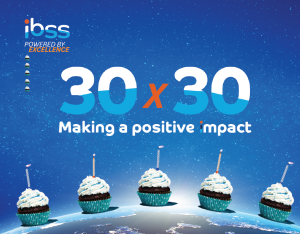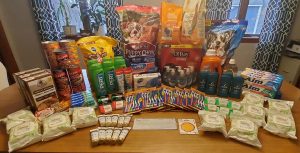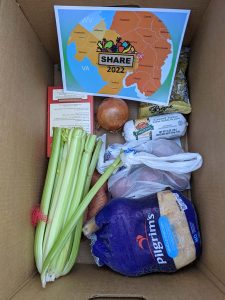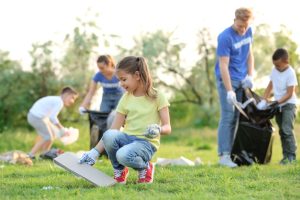Over the years, litter has become a problem. Much of it ends up in waterways and/or the ocean as marine debris. According to the National Oceanic and Atmospheric Administration (NOAA), marine debris is defined as any persistent solid material that is manufactured or processed and directly or indirectly, intentionally or unintentionally, disposed of or abandoned into the marine environment or the Great Lakes. One of the main causes of marine debris is humans, from littering to improper waste disposal. However, with the right education and choices, you can stop marine debris from cluttering the ocean and terrorizing the wildlife that lives there.
In celebration of National Cleanup Month, IBSS will publish a series of blogs that include ways you can contribute to clean oceans, from small ways to much bigger ones. These blogs will be in preparation for and in continuation after National Cleanup Day, which is September 18, 2021.
Hikers Steve Jewett and Bill Willoughby noticed litter across their favorite hiking trails and decided to do something about it. To make it fun, they made cleaning up litter a game, with Steve calling out litter and Bill picking it up with barbeque tongs. The fun started to spread across the trails they hiked on and as they played others joined in the fun. What started out as a game between friends quickly became a sustainable nonprofit organization dedicated to cleaning up this planet we call home. Their organization encouraged people to pick up litter on the third Saturday in September. Last year, the movement expanded to cleaning up during the entire month of September.
Another movement called “plogging” began in Sweden around 2016 due to an increased concern about plastic pollution. Plogging is a portmanteau, and it originated from two Swedish words: “plocka upp” which means “pick up” and “jogga” which means “jog”.
Our combined individual efforts can keep the outdoors clean.
WHAT YOU CAN PERSONALLY DO TO HELP
The first step to change is starting good habits and that can be done in smaller, personal ways. Here are some tips for how you can get started cleaning up our ocean:
- Refuse plastic
In this day and age, plastic is everywhere. Refuse plastic bags at checkout, instead bring reusable tote bags to carry your groceries. Use glass cups and reusable lunch containers.
- Reduce your carbon footprint
Growing your own garden, walking more, and using reusable water bottles all contribute to reducing your carbon footprint.
- Never Litter
This one seems obvious, but litter is the main cause of marine debris. By being conscious of your waste and properly disposing of it you’re helping the environment one step at a time.
- Carry your own utensils
When you order food online or from the drive-thru, refuse plastic utensils for your own reusable ones can decrease the amount of plastic you use and reduce debris.
- Carpool
Emissions from cars greatly contribute to the pollution of our air, but it can also affect the ocean too. Catching an Uber or sharing your commute with a coworker or family member is another small life change that can help the world.
- Conserve water
Keep your showers quick and be conscious of water usage while washing things and flushing your toilet. Turning off the water while scrubbing soap on your hands can make a good impact.
- Plogging, pliking, and plalking
Plogging, pliking, and plalking are combinations of jogging, biking, and walking and picking up litter. Combining your outside activity with cleaning up litter and debris is an easy way to include the cleanup in your everyday life.
There’s a lot of debris around the world, and change will start with you. This article is a part of an installment, so stay tuned for more information about what you can do to stop marine debris and help reduce plastic pollution. This week’s article was on personal “micro” efforts, and next week’s article will look at how you can help on a medium scale.
